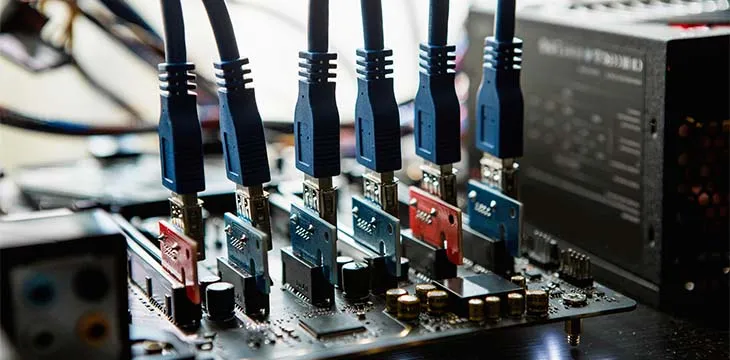|
Getting your Trinity Audio player ready...
|
Not long ago, GorillaPool created the first truly distributed BSV mining pool. BSV supporters from around the world got together to buy mining rigs and lend their existing hash power to the first community-driven mining operation.
In September, CoinGeek reported on how GorillaPool was already mining blocks on the BSV blockchain. Just over a month later, it made history by mining the largest transaction ever on the Bitcoin protocol.
GorillaPool just mined the largest individual transaction ever mined with the bitcoin protocol.
42+MB in a single tx at 0.1111 sats/byte. 🔥🍌🔥https://t.co/LYTF9nCruU
— GorillaPool (@MineLikeAnApe) October 19, 2021
More about this record-breaking transaction
- The transaction was contained in block #709721.
- It was larger than 42MB (the transaction, not the block).
- It cost just 0.1111 sats per byte.
Aside from the point that this transaction alone is bigger than the small blocks on competing Bitcoin forks, this shows how utilizing the blockchain properly can provide a long-term source of revenue for miners even after the block subsidy has diminished.
And once again, we’re seeing that the BSV blockchain is proving all of its critics wrong as distributed mining pools like GorillaPool are perfectly capable of processing significant transactions. This should silence the incorrect narrative that BSV is a corporate-controlled Bitcoin fork.
For those who insist on ‘decentralization’ and community ownership of the Bitcoin protocol, what are you waiting for? GorillaPool is looking for as much hash power as it can get to continue mining big blocks.
What’s behind such large transactions and blocks on BSV?
Several years ago, during the so-called Bitcoin civil war, small blockers told the world that big blocks and large on-chain transactions would collapse the Bitcoin blockchain and that only the technically incompetent would support such a vision. The truth is that they wanted to hijack and control Bitcoin, making it politically ‘decentralized’ via a network of home-run nodes, something Satoshi Nakamoto said was “not the intended configuration for large scale.”
Since then, while BTC has continued to push pitiful 1MB blocks, most of which are only 10% full as parasitic systems like the Lightning Network steal revenue from miners, BSV has seen an influx of developers building all sorts of useful applications on the only blockchain that scales infinitely.
Recently, large BSV blocks have been full of transaction fees for micropayments and data storage related to some of the following:
- Payments within CryptoFights, the most successful game built on BSV so far.
- Data related to Meta ID, a sub-protocol of the emerging Metanet. It will help organize users’ data between different apps and wallets on BSV.
- A growing number of other gaming and entertainment apps like Haste Arcade, Peergame, ShowBuzz, and others.
The utility on BSV is exploding
As we learned at CoinGeek New York, the use cases go far beyond what can be seen publicly on tracking sites like Bsvdata.com. Companies in the iGaming, pharmaceutical and other sectors are using BSV to store data and records of all kinds, leaving an immutable evidence trail that can be audited and verified by regulators or anyone else.
As these use cases grow, expect the blocks and transactions on BSV to get larger, too. 1+GB blocks and 42MB transactions are just the warm-up lap for what’s to come in the years and decades ahead as the unbounded power of the original Bitcoin protocol is realized and unleashed on the world.
Congratulations to GorillaPool for making history on BSV within such a short period of time. May there be many more such milestones in your future.

 08-03-2025
08-03-2025 





